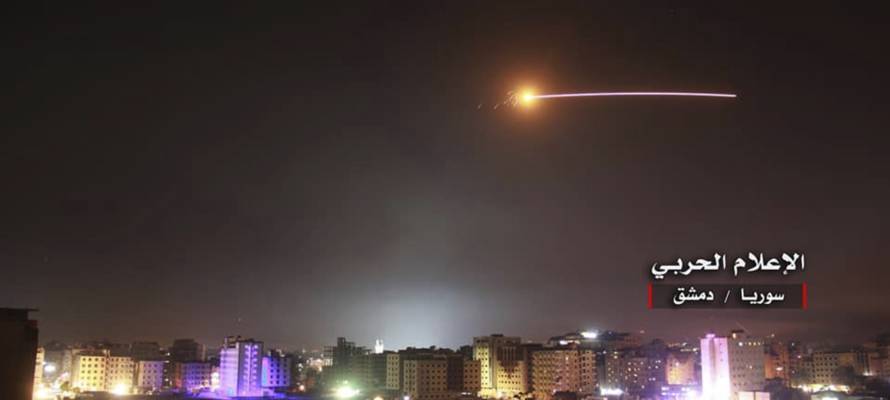Amid reports of renewed Iranian efforts to build a missile production site in Syria, Israel stands alone in its battle to stop Tehran’s expansion.
By: Yaakov Lappin, JNS.org
Iran could be trying to build missile factories in Syria again, according to recent reports, raising the possibility of further Israeli preemptive action.
The Israeli commercial satellite company ImageSat International (ISI) published images this month showing suspicious activity at a compound in Safita in northwest Syria.
“The construction patterns, the compound location and the activity signs at the compound and its region increase the probability that this is a missiles manufacturing site,” ISI assessed.
Israel remains committed to the use of force to preemptively disrupt Iranian forces’ build-up program in Syria. For now, according to Maj. Gen. (ret.) Yaakov Amidror, former national security adviser, that policy has “no alternative.”
“I’m not sure [the Iranians] are manufacturing missiles in Syria, but if it is true, then this determination stems from the fact that the matter is very important to the Iranians,” Amidror told JNS.
Russia, which continues to lead the pro-Assad regime coalition, “will not fight Israel’s wars,” said Amidror. “So long as our maneuvers and those of the Iranians do not destabilize [Syrian President Bashar] Assad’s rule, the Russians have no reason to intervene.”
According to the report by ISI, the site in northwest Syria has the same “construction visual patterns” that can be found in sites in Iran that produce surface-to-surface missiles.
“The site is located only eight kilometers from the border with Lebanon, in an area controlled by the Syrian regime and in the vicinity of the Russian surface-to-air deployments,” the company noted.
“During the last months, buses and vans were detected in the site entrance within the securely fenced compound. It appears that the workers use buses and vans as in military facility common pattern. Also, a new water tower was recently built. Those two findings indicate that the compound is active and under development,” it stated.
In addition, nearby the compound, satellite imagery revealed “massive and extensive trails” that probably belong to heavy vehicles like mobile missile launchers, it assessed.
Emily Landau, head of the Arms Control and Regional Security Program at the Institute for National Security Studies in Tel Aviv, said Israel stands by itself in its battle to prevent Iranian weapons proliferation and military build-up to its north.
“Israel has been left alone to deal with weapons transfers and missile factories, even though as far as Hezbollah is concerned, Iran is blatantly violating U.N. Security Council resolution 1701,” she said.
Last month, Israel’s Channel 12 said in a report that despite Iranian and Syrian attempts to hide the site, “this information has been documented by Israeli intelligence elements.”
Iran’s takeover attempts have run into difficulties in the form of hundreds of airstrikes, the report noted. “Nevertheless, the Syrians and Iranians find creative ways to supply the needed equipment to Lebanon,” said Landau.
The report noted that Iran and Hezbollah have, in recent years, engaged in an effort to set up precision missile-production sites inside Lebanon as well.
“Where is the international community on this?” asked Landau.
Looking ahead, Landau said Israel will likely “continue to carry out operations against Iranian assets in Syria and transfers to Hezbollah, but it is hard to say whether this will encourage Iran to stop or to step up its efforts. The international community is happy to leave this to Israel, but its indifference must be highlighted and challenged.”
With Russia playing a dominant military and strategic role in Syria, “Israel has no choice but to coordinate its military action in Syria with Russia, as the U.S. is signaling it is not interested in being directly involved,” she noted. “But it is a delicate balancing act because of the importance of Israel’s relationship with the U.S.”
